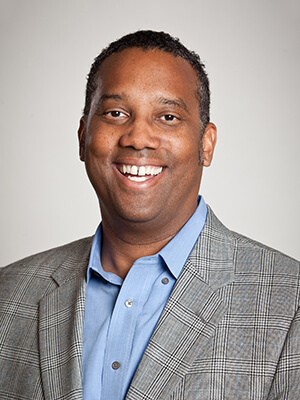- June 11, 2019
- By Karen Johnson
You’d think that even four years after its diesel emissions scandal broke, Volkswagen would be keen to avoid the topic.
 That’s what makes its latest ad campaign so surprising—and so compelling, says Henry C. Boyd III, clinical professor of marketing in the Robert H. Smith School of Business.
That’s what makes its latest ad campaign so surprising—and so compelling, says Henry C. Boyd III, clinical professor of marketing in the Robert H. Smith School of Business.
The automaker’s 105-second “Hello Light” commercial, which debuted last week during the NBA Finals, combines dramatic storytelling with a soundtrack that recalls the company’s 1960s glory days while managing to refer to recent troubles and even signal an innovative future.
“It’s a nice piece of work,” said Boyd.
The ad opens with a montage of newscasts about the company’s use of illegal software to trick emissions-testing technology that plays as a VW employee arrives in his darkened office. The news clicks off, and the employee sighs and gets to work, designing a new electric vehicle with sketchbook and pencil, as Simon and Garfunkel’s “The Sounds of Silence” begins to play. “Hello darkness, my old friend.”
“In the darkness, we found the light,” the on-screen text reads, then promises a “new era of electric driving.”
Boyd said it reminded him of his doctorate research at Duke University, examining the effectiveness of lecture ads versus drama ads, like “Hello Light.”
Lecture ads tend to be informative, he said, with a spokesperson narrating a sales pitch. Drama ads are a mini-play unto themselves. “When they are done well, the viewer feels compelled to watch,” Boyd said. “They make the viewer wonder, ‘What is it all about?’ They have to watch and put it all together.”
This ad does that, Boyd said. “It’s a little more sophisticated as a form of persuasion and it’s a bit risky,” he says.
In VW’s case, that risk involved reminding viewers of the scandal, and having that reminder serve as the lasting impression, alienating potential customers. Instead, the ad tells the story of a company that’s been deep in self-reflection.
Simon and Garfunkel released “The Sounds of Silence” in 1964, when VW was in its iconic heyday, maker of the classic Beetle and the Microbus. “It was anti-establishment. It was this really cool, hippie brand and it was doing really well,” Boyd said. “With this song, Volkswagen is taking you back. It’s embracing this nostalgia.”
But the song is also about the creative process, which makes the song and its lyrics resonant for those who remember the 1960s, and those born long after. He quoted Simon’s lyrics.
‘Hello darkness, my old friend / I’ve come to talk with you again / Because a vision softly creeping / Left its seeds while I was sleeping / And the vision that was planted in my brain / Still remains.’
“If you create anything, especially in the realm of science, you’re going to try things, and things are going to fail,” Boyd said. “But the creativity—the innovation—often comes out of failure.”
‘In restless dreams I walked alone / Narrow streets of cobblestone’
“It is a lonely journey for the creatives, for the inventor, for the scientist, for the designer,” Boyd said.
‘Neath the halo of a street lamp / I turned my collar to the cold and damp.’
“The ‘cold and damp,’ to me, is the old guard, the old way of doing things,” said Boyd. “As a creative, you have to turn your back on former convention. And at Volkswagen, that means turning away from internal combustion engines, away from diesel, and going electric.”
‘When my eyes were stabbed by the flash of a neon light / That split the night / And touched the sound of silence.’
After multiple scrapped drafts, the designer settles on a vehicle that looks strikingly like the old VW bus. But it’s modern, updated, smaller and electric. It goes from sketch to reality, or at least, concept car reality: the ID. Buzz.
“When you’re done watching,” Boyd said, “you’re thinking, ‘Hey, I like that Volkswagen is turning things around. I like that there is this resilience.’”
